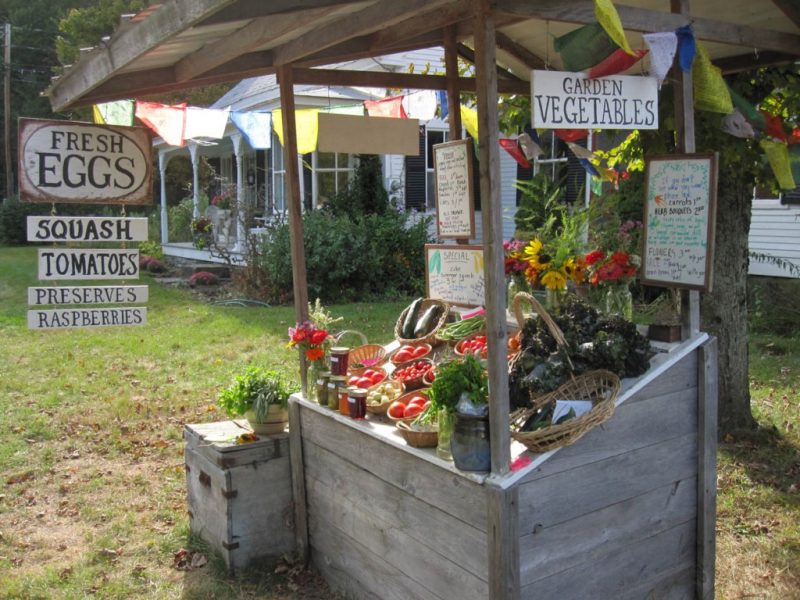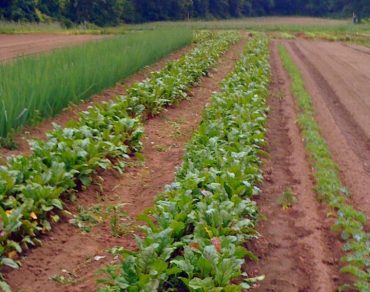Organic food definition and what it means
National CSA Directory February 10, 2019


Organic food definition
The Department for Agriculture and Rural Affairs (DEFRA) states that:
‘Organic food is the product of a farming system which avoids the use of man-made fertilizers, pesticides; growth regulators and livestock feed additives. Irradiation and the use of genetically modified organisms (GMOs) or products produced from or by GMOs are generally prohibited by organic legislation.
Organic agriculture is a systems approach to production that is working towards environmentally, socially and economically sustainable production. Instead, the agricultural systems rely on crop rotation, animal and plant manures, some hand weeding and biological pest control’.
The introduction of chemicals to gardening
To understand the organic standard, it helps to know the history. Chemical pesticides began to transform American agriculture after World War II. With war-torn countries desperate for food, the global call was to produce as much food as possible. Chemical companies had the answer. During the war, the insecticide DDT was credited with saving thousands of lives thanks to how effective it was at eliminating disease-carrying insects. Plus, companies which had produced chemical weapons and gas chamber poisons like Zyklon B and participated in the operation of concentration camps — needed new markets.
With these suddenly available tools that made commodity agriculture easier, many farmers heeded the call to scale up using chemical inputs, including synthetic pesticides and fertilizers. And that call got louder in subsequent decades.
Organic farming
Organic agriculture is about a way of farming that pays close attention to nature. It means fewer chemicals on the land such as artificial fertilizers, which can pollute waterways. It means more wildlife and biodiversity, the absence of veterinary medicines such as antibiotics in rearing livestock and the avoidance of genetic modification. Organic farming can also offer benefits for animal welfare, as animals are required to be kept in more natural, free conditions.
The USDA’s Economic Research Service reports that in 2003, farmers in 49 states used organic production methods and third-party organic certification services on 2.2 million acres out of a total of 828 million acres of farmland. Approximately two-thirds of the certified U.S. organic farmland was used for crops, and one-third was used as pastures
While organic food can be found throughout the country, California was the leader in production of organic fruits and vegetables in 2003. Farmers and ranchers in 30 states raised a small number of certified organic cows, hogs and sheep. Wisconsin, California and New York were the top producers of organic dairy cows.
Buying organic produce
Organic food is cheapest when bought directly from a farmer or producer, either thru a box scheme or farmers market. Buying local, organic food will often cost less than the non-organic equivalent.
Food grown locally is fresh and seasonal. If you’ve ever had a vegetable garden, you know that the best foods are the ones that don’t sit on a shelf waiting for you to consume them. Buying local food also allows you to help your community’s economy and helps reduce the environmental costs associated with food miles.
If you are on a tight budget but would like to buy more organic food, then you could try prioritizing your purchases. Items such as organic flour, milk, bread and butter can be cheaper, as can fresh seasonal produce such as salad leaves and herbs. You may actually find that locally produced organic whole foods are cheaper than their conventional equivalents.
There are other reasons, besides nutrition, that people choose organic food – such as taste, to avoid pesticides and a concern for the environment. The organic movement does promote better soil and it stands to reason that in the long run, organic farming is better for overall soil quality. Let’s not forget the most important factor in your diet, as far as fruit and vegetables are concerned, is to eat as much and as wide a variety as possible.
If eating 100% organic is a struggle, keep in mind there are many high quality, wholesome foods around that do not come with organic certification – such as grass-reared meat, wild fish and hand-made cheeses.
